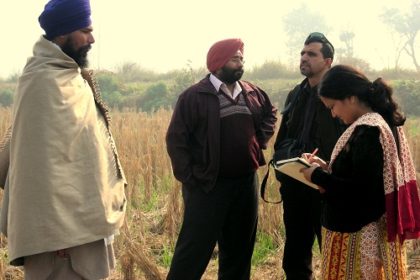
This study was undertaken in the Indo-Gangetic Plains in South Asia covering India, Bangladesh and Nepal. This study funded by the Climate Change Agriculture and Food Security CCAFS) programme of CGIAR focused on understanding the local innovation processes in relation to different types of risks and vulnerabilities primarily associated with climate change. The study was led by the South Asia Institute of Advanced Studies (SIAS), Kathmandu and CRISP did research on this issue in India in two states, namely Punjab and Bihar.
Despite growing scientific consensus that agriculture is affected by climate change and variability, there is still limited knowledge on how agricultural systems respond to climate risks under different circumstances. Drawing on three case studies conducted in the Indo-Gangetic Plains, covering Nepal, Bangladesh, and the Indian state of Punjab, this article analyzes agricultural adaptation practices to climate change. In particular, we examine how farmers and other agricultural actors understand and respond to climate change. We identify a variety of adaptation practices related to changes in cropping system, technological innovations, and institutional changes. We also explore key challenges related to such emerging adaptive innovation processes in the region.
Related Links
https://ccafs.cgiar.org/blog/agricultural-systems-adapting-climate-change-south-asia#.VcOBH9yqqko
http://www.tandfonline.com/doi/abs/10.1080/21683565.2013.841607#.VcOBbdyqqko
